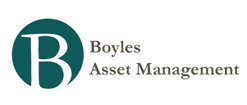Money and Finance
- How I Learnt The Power Of Checklists – By John Kay
Found via Abnormal Returns. Mr Gawande discovered that the good checklist is short but not too short. If the list is long, none of the items on it are taken very seriously. You can easily persuade people to agree to things when you ask them to mechanically...
- Personal Best - By Atul Gawande
Thanks to Barry for passing this along. Good coaches know how to break down performance into its critical individual components. In sports, coaches focus on mechanics, conditioning, and strategy, and have ways to break each of those down, in turn. The...
- Malcolm Gladwell Reviews Atul Gawande's Latest Book: The Checklist Manifesto
I can't wait to read this book! As Charlie Munger says: "Checklist routines avoid a lot of errors. You should have all this elementary [worldly] wisdom and then you should go through a mental checklist in order to use it. There is no other procedure...
- Dr. Atul Gawande - 2009 Commencement Speeches
Dr. Atul Gawande gave two commencement speeches in June. The first I found via the Farnam Street blog. (Below are some of excerpts. Click on the paragraphs for the entire speeches.) June 4, 2009 Speech at the HSPH Commencement 2009 We have arrived, I...
- Medtronic Stock Analysis
Like my Coca-Cola stock analysis I was surprised when I looked back through my stock analysis archives that I had never posted about Medtronic (MDT). I had actually gone through the full analysis back in June of this year but couldn't find my post...
Money and Finance
Atul Gawande’s Williams College Commencement Address
When I was nearing the end of medical school, I decided to go into surgery. I had become enthralled by surgeons, especially by their competence. The source of their success, I believed, was their physical skill—their hand-eye coördination and fine-motor control. But it wasn’t, I learned in residency training. Getting the physical skills is important, and they take some time to practice and master, but they turn out to be no more difficult to learn than those that Mrs. C. mastered as a seamstress. Instead, the critical skills of the best surgeons I saw involved the ability to handle complexity and uncertainty. They had developed judgment, mastery of teamwork, and willingness to accept responsibility for the consequences of their choices. In this respect, I realized, surgery turns out to be no different than a life in teaching, public service, business, or almost anything you may decide to pursue. We all face complexity and uncertainty no matter where our path takes us. That means we all face the risk of failure. So along the way, we all are forced to develop these critical capacities—of judgment, teamwork, and acceptance of responsibility.
In commencement addresses like this, people admonish us: take risks; be willing to fail. But this has always puzzled me. Do you want a surgeon whose motto is “I like taking risks”? We do in fact want people to take risks, to strive for difficult goals even when the possibility of failure looms. Progress cannot happen otherwise. But how they do it is what seems to matter. The key to reducing death after surgery was the introduction of ways to reduce the risk of things going wrong—through specialization, better planning, and technology. They have produced a remarkable transformation in the field. Not that long ago, surgery was so inherently dangerous that you would only consider it as a last resort. Large numbers of patients developed serious infections afterward, bleeding, and other deadly problems we euphemistically called “complications.” Now surgery has become so safe and routine that most is day surgery—you go home right afterward.
But there continue to be huge differences between hospitals in the outcomes of their care. Some places still have far higher death rates than others. And an interesting line of research has opened up asking why.
- How I Learnt The Power Of Checklists – By John Kay
Found via Abnormal Returns. Mr Gawande discovered that the good checklist is short but not too short. If the list is long, none of the items on it are taken very seriously. You can easily persuade people to agree to things when you ask them to mechanically...
- Personal Best - By Atul Gawande
Thanks to Barry for passing this along. Good coaches know how to break down performance into its critical individual components. In sports, coaches focus on mechanics, conditioning, and strategy, and have ways to break each of those down, in turn. The...
- Malcolm Gladwell Reviews Atul Gawande's Latest Book: The Checklist Manifesto
I can't wait to read this book! As Charlie Munger says: "Checklist routines avoid a lot of errors. You should have all this elementary [worldly] wisdom and then you should go through a mental checklist in order to use it. There is no other procedure...
- Dr. Atul Gawande - 2009 Commencement Speeches
Dr. Atul Gawande gave two commencement speeches in June. The first I found via the Farnam Street blog. (Below are some of excerpts. Click on the paragraphs for the entire speeches.) June 4, 2009 Speech at the HSPH Commencement 2009 We have arrived, I...
- Medtronic Stock Analysis
Like my Coca-Cola stock analysis I was surprised when I looked back through my stock analysis archives that I had never posted about Medtronic (MDT). I had actually gone through the full analysis back in June of this year but couldn't find my post...

